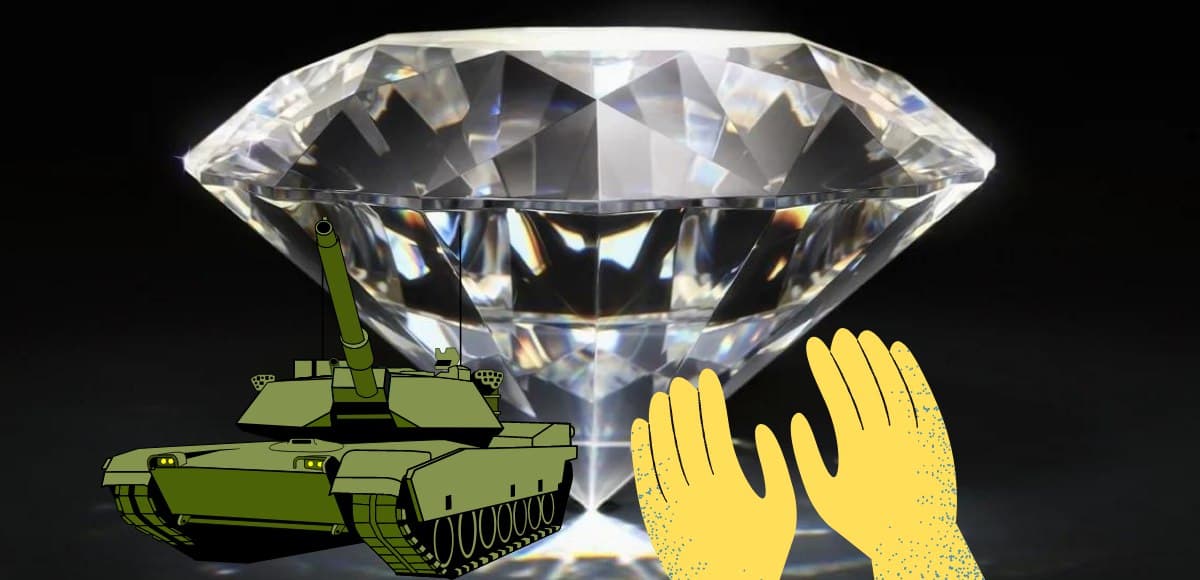Pandemic, War and Diamond Mining: How Historical Events Affect Marketing
What do coronavirus, WWII, and diamonds have in common? At first glance, nothing. However, all these events influenced the course of marketing development. What needs a person has resulted from new turns in history and why do we pay not for a brand, but promises, tells Yevhenii Mironyuk, a history lover and managing partner for the marketing agency Brain Tank.
Any tectonic change, as a rule, is synchronized with three types of events:
- The industrial revolution.
- Scientific discoveries, such as electricity, the transistor, or the electronic computer.
- Social events.
Since marketing is an integral part of people's lives, it always reacts to changes in society. Therefore, everything that happens in the world or a particular country is reflected in sales.
Pandemic: the need for mental health
We are now experiencing a social shift associated with the coronavirus pandemic. It led to a clear change in marketing — now we have no choice between online and offline stores. The Internet has become the only tool with which we can interact. As a result, people became socially closed, physically disconnected, and needed mental health. This is an international trend: we need to be recognized as we are now. Since the pandemic restricts us from communicating with each other, we no longer receive confirmation that we are good, beautiful, and smart.

Today, the need for mental health drives all types and categories of products. With their help, a person wants to make sure that he is decent and cool, that he is safe, including psychological, that he will not go crazy because no one needs him. Now it is not the brand itself that is important to people, but the sense of belonging that it brings with it to the consumer's life. To win attention is left in yesterday, but to show that a person will be calm with this product is the necessity of nowadays.
World War II and the economy of promises
History knows many examples of when a significant event changed the way of thinking about marketing. Let's take World War II. First, thanks to the Bretton Woods system, there was a rejection of the gold backing of any currency. Secondly, money has become a measure of quality. Finally, Keynesian advances towards taking the core of the essence of the resource and conveying it into a promise led to the transition of marketing from commodity-money expression to "money-promise." The turning point was that the technical characteristics and rational features of the product were no longer important. The only thing that matters is the promises. Thus, marketing has moved from the past “I’m great! I repair a boot well” into the future “I will be handsome, and the girls will be crazy about me, and this is because my shoes are like that.”
This principle is still valid in our time. Marketing no longer focuses on sales right now. Instead, it focuses on delivering promises for as long as possible. It is also important that they meet one of the key needs for Maslow's pyramid — this is the essence of brand positioning today. For example, satisfying hunger — and a chocolate bar with nuts assures that it will cover the basic need here and now.

We don't buy a specific brand of ski suit, but a promise to be a part of a society that saves other people, recognizes multiple genders, supports body positivity and the environment. If it has no deal with any, we are not ready to pay for it. And the question is not in the quality of specific softshell but our need for psychological health. Thus, product marketing today is already faith marketing, i.e., a system for maintaining long-term promises.
How marketing creates new value
But there are examples in history when factors of a regional scale turned global marketing upside down. Take the discovery of diamond deposits in southern Africa in 1867. The stones filled the European market, which could collapse their price on the world market. To avoid this, British financiers decided to limit diamond mining to maintain the myth about the uniqueness of diamonds and create the illusion of their scarcity. To sell such an expensive item, marketers at De Beers, which has become a virtual monopoly in the industry, have managed to convince people that an engagement cannot be complete without presenting a diamond ring. This romantic picture has turned into a real scenario of couples in love worldwide, from the USA to Japan. And the phrase “A diamond is forever” has remained a permanent business card of the company for over 70 years and has been recognized as the best advertising slogan of the century.

Thus, even the discovery of a mineral deposit in distant Africa is changing the marketing of superpowers. The society's need for uniqueness, recognition, and love played into the hands of marketers who took advantage of people's weaknesses and, supporting the legend, adhering to the right strategy and a well-thought-out advertising campaign, and were able to impose new values on all of humanity that remain relevant to this day.














